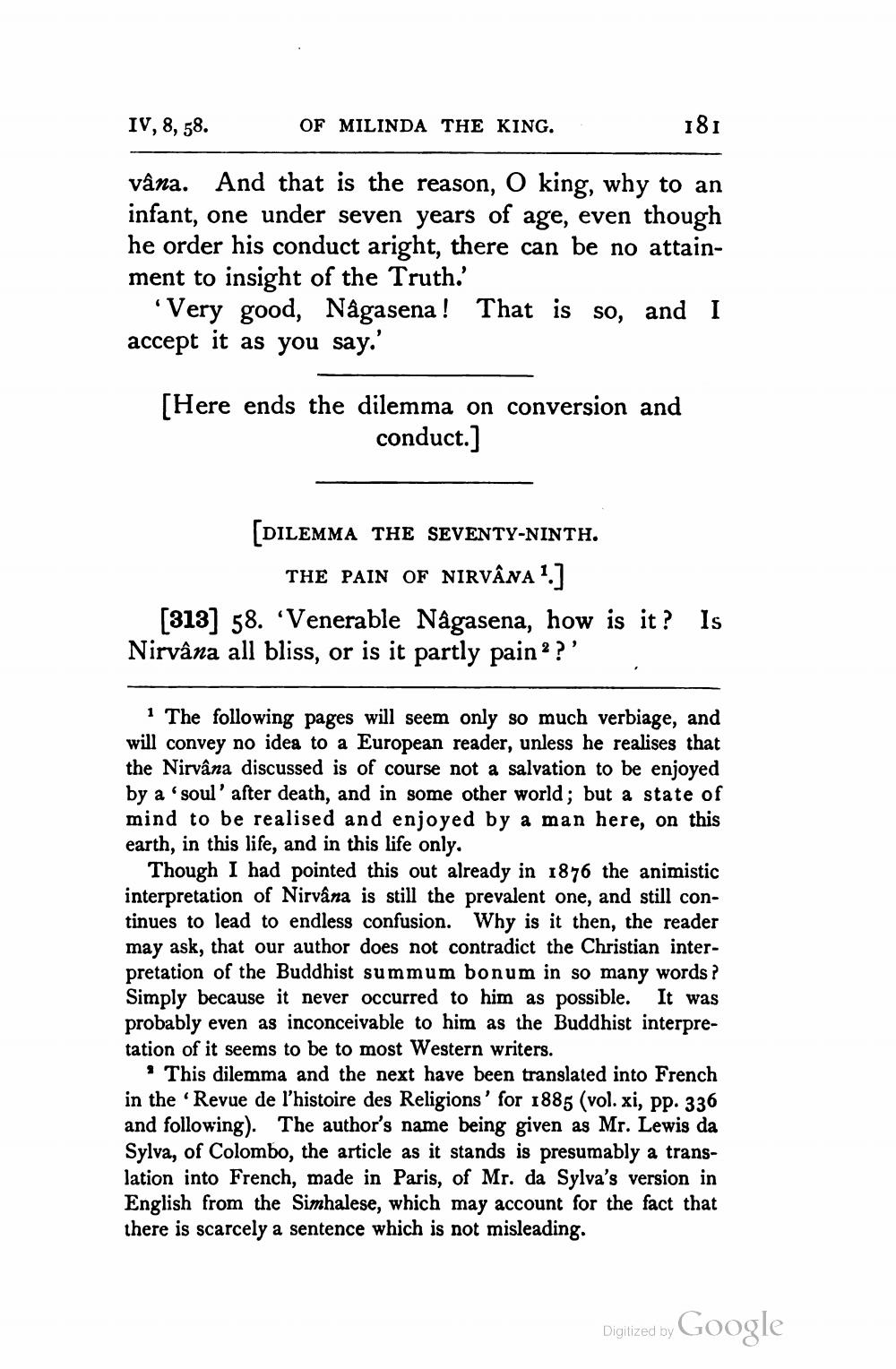________________
IV, 8, 58.
OF MILINDA THE KING.
181
vâna. And that is the reason, O king, why to an infant, one under seven years of age, even though he order his conduct aright, there can be no attainment to insight of the Truth.'
Very good, Någasena! That is so, and I accept it as you say.'
[Here ends the dilemma on conversion and
conduct.]
(DILEMMA THE SEVENTY-NINTH.
THE PAIN OF NIRVANA?.] [313] 58. 'Venerable Nâgasena, how is it? Is Nirvana all bliss, or is it partly pain??'
1 The following pages will seem only so much verbiage, and will convey no idea to a European reader, unless he realises that the Nirvâna discussed is of course not a salvation to be enjoyed by a soul' after death, and in some other world; but a state of mind to be realised and enjoyed by a man here, on this earth, in this life, and in this life only.
Though I had pointed this out already in 1876 the animistic interpretation of Nirvana is still the prevalent one, and still continues to lead to endless confusion. Why is it then, the reader may ask, that our author does not contradict the Christian interpretation of the Buddhist summum bonum in so many words? Simply because it never occurred to him as possible. It was probably even as inconceivable to him as the Buddhist interpretation of it seems to be to most Western writers.
• This dilemma and the next have been translated into French in the Revue de l'histoire des Religions' for 1885 (vol. xi, pp. 336 and following). The author's name being given as Mr. Lewis da Sylva, of Colombo, the article as it stands is presumably a translation into French, made in Paris, of Mr. da Sylva's version in English from the Simhalese, which may account for the fact that there is scarcely a sentence which is not misleading.
Digitized by Google




